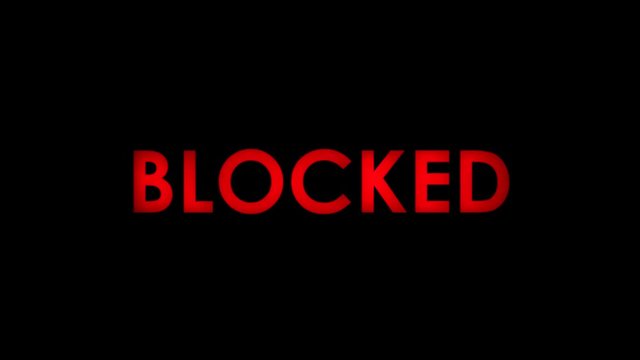Russia Blocks Pornhub and YouPorn: A Deep Dive into the Ban
In a striking move that reverberated across the global digital community, Russia’s telecommunications watchdog Roskomnadzor has once again stepped into the spotlight by blocking access to Pornhub and YouPorn, two of the most-visited adult content platforms in the world. The decision, which was enforced on a Tuesday, has raised serious questions about internet censorship, digital rights, and government control in Russia.
This article delves into the reasons behind the ban, its historical context, reactions from the public and industry, and the broader implications for online freedom in the Russian Federation.
Understanding the Ban: Who Is Behind It?
Roskomnadzor: The Digital Gatekeeper of Russia
Roskomnadzor, officially known as the Federal Service for Supervision of Communications, Information Technology and Mass Media, is the governmental body responsible for monitoring and regulating Russia’s digital space. Often seen as the digital enforcer for the Kremlin, Roskomnadzor plays a pivotal role in blocking access to websites that allegedly violate Russian laws.
Over the past decade, Roskomnadzor has consistently worked to enforce strict content regulations, especially those related to extremism, pornography, and politically sensitive material.
Legal Grounds for the Ban
The most recent decision to ban Pornhub and YouPorn stems from a court ruling that accused the platforms of violating child protection laws. This echoes a similar ruling in September of the previous year when Pornhub was briefly banned under the same legal provisions.
According to Roskomnadzor, both websites failed to implement age verification mechanisms robust enough to protect minors, a legal requirement under Russian internet legislation.
The Role of the Courts
While Roskomnadzor acts as the executive enforcer, Russian courts serve as the legal foundation for such decisions. In this case, a court order mandated the blockage, with a follow-up hearing scheduled to determine whether the censorship will be permanent. These legal proceedings are rarely transparent, raising concerns among digital rights activists.
A Brief History of Internet Censorship in Russia
Previous Bans on Adult Content
This is not the first time Russia has taken action against adult websites. Since 2015, the Russian government has blocked several adult platforms, including Brazzers, Rutracker, and XHamster, citing similar legal violations.
Pornhub, in particular, has been a frequent target. It was banned in 2016 and again in 2022. On one notable occasion, Pornhub humorously responded by offering free premium memberships to Russian citizens if the government reversed the ban.
Broader Digital Crackdowns
The ban on Pornhub and YouPorn fits into a larger pattern of internet control in Russia. In recent years, the Kremlin has ramped up efforts to tighten control over the digital landscape, imposing fines on foreign tech companies, pushing for data localization laws, and even threatening to disconnect from the global internet through the development of a sovereign Russian internet.
The so-called “sovereign internet” law, which came into effect in 2019, gives the government sweeping powers to isolate the Russian internet from the rest of the world. Many experts see the current bans as part of this broader push for digital sovereignty.
Public and Industry Reaction
Responses from Pornhub and YouPorn
Pornhub, known for its savvy and occasionally cheeky social media presence, responded with a tongue-in-cheek tweet offering Russians free premium access if the ban was lifted. This humorous gesture, however, masked a deeper frustration with recurring bans in jurisdictions like Russia.
YouPorn, owned by the same parent company (MindGeek), has not released an official statement but is likely following the situation closely as it affects millions of users and significant ad revenue.
Russian Public Response
The Russian public has taken to social media to express their opinions, with responses ranging from frustration and humor to resignation. Some users pointed out the irony of banning adult content while other harmful materials remain accessible, while others joked about turning to VPNs and proxy servers to circumvent the restrictions.
In forums and on Telegram channels, digital workarounds were immediately shared, illustrating the tech-savviness of the Russian internet user base and their resistance to censorship.
Digital Rights and Freedom of Expression
The Censorship Debate
Digital rights organizations have condemned the ban, citing it as yet another example of state overreach into personal freedoms. Critics argue that such censorship not only violates privacy but also sets dangerous precedents for future internet governance.
According to Roskomsvoboda, a Russian digital rights group, these types of actions are “paving the road to a fully controlled internet,” eroding citizens’ rights to access legal content freely.
International Criticism
Russia’s repeated use of censorship has drawn international criticism, particularly from organizations like Amnesty International and Reporters Without Borders. These groups argue that the targeting of adult websites is often a cover for broader attempts to silence dissent and centralize control.
Circumvention: How Users Get Around the Ban
VPNs and Proxy Services
Almost immediately after the ban was announced, Russian users turned to Virtual Private Networks (VPNs) and proxy services to regain access. VPN usage in Russia has surged over the past few years, largely in response to increasing censorship.
Tech-savvy users now routinely rely on these tools to access not only adult content but also news websites, social platforms, and streaming services that have faced similar restrictions.
Rise of Decentralized Platforms
Some internet freedom advocates are pushing for decentralized content platforms that are harder for governments to control. Platforms powered by blockchain technology or peer-to-peer networking are gaining attention as potential alternatives that resist censorship by design.
The Political Context
A Tool for Moral Policing?
Many analysts believe that the Russian government uses bans on adult content as a form of moral policing, appealing to conservative and religious elements of society. This aligns with President Vladimir Putin’s broader narrative of traditional values, national identity, and social order.
By targeting adult platforms, the government may be aiming to project an image of moral guardianship, despite the actual ineffectiveness of such bans in deterring access.
Strategic Distraction?
Some critics suggest that high-profile bans on websites like Pornhub may serve as strategic distractions from political or economic issues. By focusing media attention on morally charged topics, the government may aim to shift public discourse away from topics like inflation, war, and political dissent.
Broader Implications for the Internet in Russia
Slippery Slope Toward Full Digital Authoritarianism
The repeated targeting of adult websites is a symptom of a broader slide toward digital authoritarianism. Experts warn that while these platforms may not seem politically significant, their censorship reveals an infrastructure of control that can easily be repurposed to suppress dissent, monitor citizens, and control narratives.
Impact on International Tech Firms
Foreign tech companies operating in Russia are watching these developments with concern. Repeated regulatory interference, fines, and the threat of bans make the Russian digital market increasingly hostile for global firms.
Companies are faced with a dilemma: comply with restrictive laws or risk being blocked, a choice that undermines global standards for freedom of expression and user privacy.
What’s Next?
Upcoming Court Decision
The fate of Pornhub and YouPorn in Russia will be determined in a forthcoming court hearing, which will decide whether to make the ban permanent. Given the Russian judiciary’s tendency to align with state interests, many expect the block to remain in place.
Possible Escalation
If the government sees continued evasion through VPNs and proxies, it may take further steps to restrict access to these tools as well, something it has already attempted in the past. This could lead to a new wave of censorship laws targeting encryption, anonymity, and digital security.
Conclusion
The banning of Pornhub and YouPorn by Russia’s Roskomnadzor is more than just a story about adult content—it’s a window into the ongoing struggle for digital freedom in Russia. While the official justification centers on child protection laws, the broader context reveals a tightening grip on the internet, with significant implications for privacy, expression, and access to information.
As users adapt and tech evolves, the question remains: Can digital freedom survive in a landscape increasingly defined by surveillance and control? The outcome of the upcoming court decision will be pivotal—not just for adult content platforms, but for the future of the open internet in Russia.
- Evan Name Meaning - June 5, 2025
- Virginia’s Most Popular THC Infused Drinks - June 5, 2025
- Nebraska’s THC Infused Seltzer Recommendations - June 4, 2025






